 Petzlover
Petzlover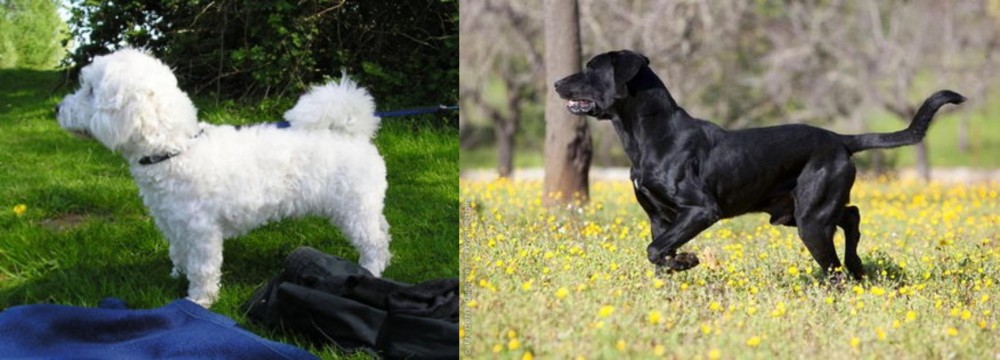 Franzuskaya Bolonka is originated from France but Perro de Pastor Mallorquin is originated from Spain. Franzuskaya Bolonka may grow 46 cm / 18 inches shorter than Perro de Pastor Mallorquin. Franzuskaya Bolonka may weigh 35 kg / 77 pounds lesser than Perro de Pastor Mallorquin. Franzuskaya Bolonka may live 3 years more than Perro de Pastor Mallorquin. Franzuskaya Bolonka may have less litter size than Perro de Pastor Mallorquin. Franzuskaya Bolonka requires Low Maintenance. But Perro de Pastor Mallorquin requires Moderate Maintenance
Franzuskaya Bolonka is originated from France but Perro de Pastor Mallorquin is originated from Spain. Franzuskaya Bolonka may grow 46 cm / 18 inches shorter than Perro de Pastor Mallorquin. Franzuskaya Bolonka may weigh 35 kg / 77 pounds lesser than Perro de Pastor Mallorquin. Franzuskaya Bolonka may live 3 years more than Perro de Pastor Mallorquin. Franzuskaya Bolonka may have less litter size than Perro de Pastor Mallorquin. Franzuskaya Bolonka requires Low Maintenance. But Perro de Pastor Mallorquin requires Moderate Maintenance
 The Franzuskaya Bolonka in France is known as the Tsvetnaya Bolonka in Russia and in Germany as the Bolonka Zwetna. All of these translate to Colored Bolognese. It is known as the “Pride of Russia” and was rediscovered by the Russians following the thaw of the Cold War. It is also sometimes translated as a colored lapdog.
The Franzuskaya Bolonka in France is known as the Tsvetnaya Bolonka in Russia and in Germany as the Bolonka Zwetna. All of these translate to Colored Bolognese. It is known as the “Pride of Russia” and was rediscovered by the Russians following the thaw of the Cold War. It is also sometimes translated as a colored lapdog.
The Bolonka is a rare breed in the toy category with ancestors in the Bichon Friese line. This little dog looks very much like the national dog of Cuba – the Havanese. In addition to the Bichon other small dogs in this ancestral line include the Shih Tzu, Toy Poodle, and Pekingese as well as the French, Italian and German Bolonka. They are often confused with the Bolognese as both breeds appear in various countries and have many similarities.
In all countries the common name for this dog is the Bolonka. They have a variety of names and nick names depending on the country. In addition to being the “Pride of Russia” he is called a Russian colored Bichon, Czechs call it the Bareyny Bolonsky, the Germans since 1980 have called it the Bolonka Zwetna but the Nordic Kennel Union does not recognize the Zwenta only the Russian Twetnaya.
The French version is seen to be the original with its ancestry dating back to the 18th century when Russian nobles were presented with a Bolonka by Louis XIV of France, and others migrated with the army of Napoleon to Russia. They were still known as the Bolonka of France. Small dogs were not popular in Russia due to the need for dogs that could work on farms and/or hunt. Particularly during the Soviet years, they were considered unnecessary. No Bolonkas were imported to Russia during the Soviet regime, so only localized breeding took place. The goal of breeders in the Soviet Union was to develop a toy dog, lap sized with an apartment living temperament.
During the cold war the Russians sent a pair of breeding Franzuskaya Bolonka to East Germany and they began to develop the breed there as well. At the same time the colored versions of the Bolonka were being bred. The Franzuskaya Bolonka is recognized by the Verband Dur Das Deutsche Hundewesen (VDF) while the other colored breeds are not. The white Bolonka is not recognized by the Federation Cynoloqique Internationale as a breed separate from the Bolognese but as simply another version. Individual clubs throughout the world recognized one or more versions of the Bolonka. They are thought to be the rarest within the Bichon family.
Today’s Bolonka is owed by Prince William and Princess Kate, giving the breed more publicity than it has had in many years.
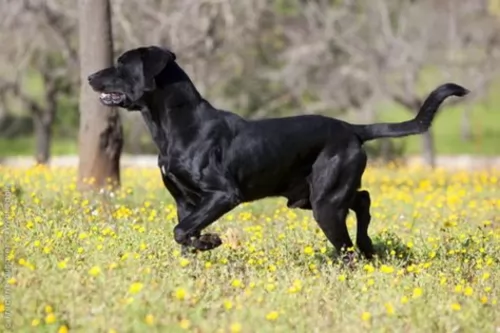 Known also as the Majorca Shepherd Dog or Ca de Bestiar, the very name Perro de Pastor Mallorquin means Shepherd dog of Mallorca.
Known also as the Majorca Shepherd Dog or Ca de Bestiar, the very name Perro de Pastor Mallorquin means Shepherd dog of Mallorca.
The dog hails from Spain and has been used as a general purpose farm dog. The diligent work of fans of the dog to encourage its development were rewarded when the dog - both short- and long haired varieties - gained recognition from the Fédération Cynologique Internationale.
The dog is really only popular in its homeland where it is appreciated for its guarding and herding abilities.
 The Franzuskaya Bolonka is neither heavy boned nor fine boned. They are a toy breed with a moderate bone structure. The ears are neither long nor short and they have tails that touch the back at the tip. Like others in the Bichon family the Franzuskaya Bolonka does not shed. He is a sturdy little dog and the male has a distinct beard and moustache that the females of the breed do not. They have long coats that are wavy and curly. The Franzuskaya Bolonka is of course only white. The Russian version might be brown, red, black, wolf-gray, gray and of course white.
The Franzuskaya Bolonka is neither heavy boned nor fine boned. They are a toy breed with a moderate bone structure. The ears are neither long nor short and they have tails that touch the back at the tip. Like others in the Bichon family the Franzuskaya Bolonka does not shed. He is a sturdy little dog and the male has a distinct beard and moustache that the females of the breed do not. They have long coats that are wavy and curly. The Franzuskaya Bolonka is of course only white. The Russian version might be brown, red, black, wolf-gray, gray and of course white.
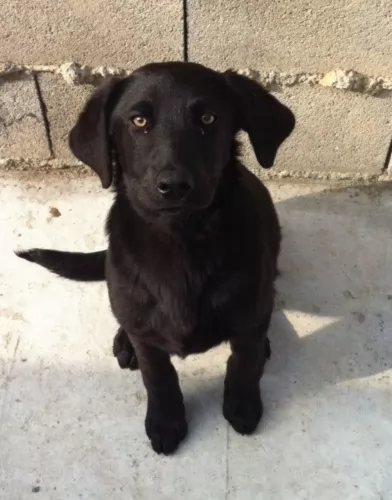 The Perro de Pastor Mallorquin is a large dog which stands between 62 and 73 cm and weighs between 35 and 40kg. Most of them are short haired, ensuring low grooming requirements for the owner. The coat is black, in fact the Fédération Cynologique Internationale says its the only color which is acceptable. He has floppy ears and the tail is long, rising when the dog is on the move.
The Perro de Pastor Mallorquin is a large dog which stands between 62 and 73 cm and weighs between 35 and 40kg. Most of them are short haired, ensuring low grooming requirements for the owner. The coat is black, in fact the Fédération Cynologique Internationale says its the only color which is acceptable. He has floppy ears and the tail is long, rising when the dog is on the move.
The Perro de Pastor Mellorquin is a dominant, independent and wilful dog that will need to be trained and socialized if he is to be obedient. He is fiercely devoted to his owner, being loving and protective. This training is actually important as the Majorca Shepherd Dog doesn't take easily to strangers and can in fact show signs of aggression when around them.
It is qualities like this that make him a good guardian and watchdog. With training and socialization he will be able to get on well with other pets in the home as well as with children who have been taught how to respect- and be kind to animals.
He is an active dog too and it is better to have such a dog in the suburbs or the countryside as opposed to living in a small city property.
 The Bolonka is great with kids, just avoid too intense play.
The Bolonka is great with kids, just avoid too intense play.
The Bolonka is a playful, lap dog with a lot of love to offer
Good adaptability great in the city in apartments and great in the country as well
They are very smart and love to learn. Being firm but beyond firm is also kind.
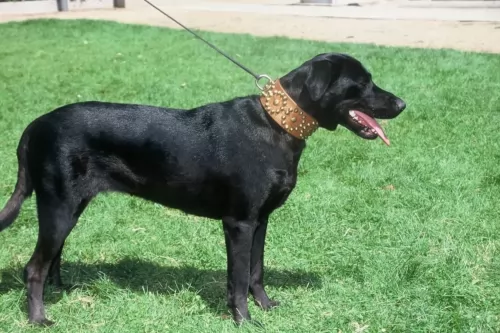 The Perro de Pastor Mallorquin is a dog known for its devotion to its owner, taking on his role as guardian and protector very seriously.
The Perro de Pastor Mallorquin is a dog known for its devotion to its owner, taking on his role as guardian and protector very seriously.
It is a courageous dog, strong willed and confident and isn't recommended as a first choice of dog for the novice dog owner, although there have been first-time dog owners who bring their dogs up correctly and have tremendous success with them.
Provide your dog with a firm consistent, kind, patient and loving home, and you can also be one of those first-time dog owners who highly recommend this dog as an awesome pet for any household.
 Medical issues are not fully documented because of the rarity of the breed and the years of isolation in the Soviet Union.
Medical issues are not fully documented because of the rarity of the breed and the years of isolation in the Soviet Union.
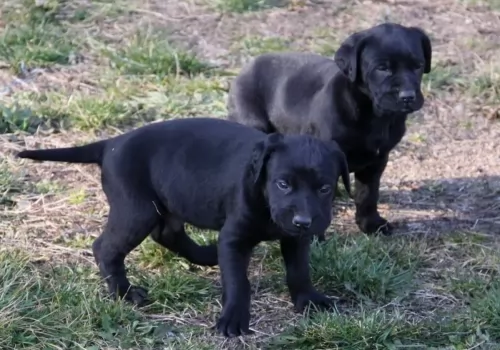 A dog can live a long, happy life when he has been looked after well. Makig sure he doesn't become obese, giving him enough exercise and loving him can ensure longevity. Your Perro de Pastor Mallorquin can live to be 13, 14 or 15 years of age, but there are always some common dog illnesses to be aware of -
A dog can live a long, happy life when he has been looked after well. Makig sure he doesn't become obese, giving him enough exercise and loving him can ensure longevity. Your Perro de Pastor Mallorquin can live to be 13, 14 or 15 years of age, but there are always some common dog illnesses to be aware of -
This is a disease of the hip where the ball and socket joint isn’t formed properly. The result is a joint that rubs as opposed to sliding smoothly. This is one of the most common skeletal diseases in dogs seen more often in large dogs. The disease can start while the dog is still young and it can lead to osteoarthritis an decreased activity.
One of the eye diseases is when the uvea of the eye becomes inflamed, creating a painful condition known as anterior uveitis or inflammation of the front of the eye.
This disease can threaten your dog’s vision. It is painful with redness of the eye, there could be a discharge too as well as excessive watery eyes. Cancer, infections and injury can all be to blame and your vet will want to examine your dog.
 Feed at least 3 meals a day. Feed one fourth of a cup daily split into three meals of a high quality puppy food.
Feed at least 3 meals a day. Feed one fourth of a cup daily split into three meals of a high quality puppy food.
Feed at least 2 meals per day. Feed one half of a cup daily split into two meals of a high quality dry food.
Fairly healthy breed due to isolation during cold war
The Franzuskaya Bolonka is developed as a lap dog but that does not mean he doesn’t need daily exercise. He loves to play but play gently and not for any length of time. They like to chase balls, play hide and seek and any tricks you want to teach them.
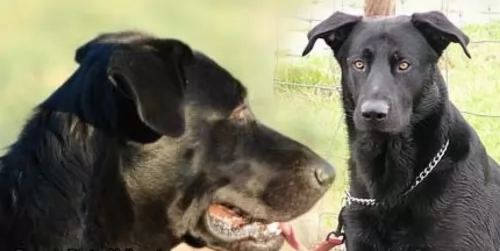 The Majorca Shepherd Dog isn't a heavy shedder but still, he will require some basic grooming such as brushing the coat twice a week to remove loose hairs and to retain his natural shine.
The Majorca Shepherd Dog isn't a heavy shedder but still, he will require some basic grooming such as brushing the coat twice a week to remove loose hairs and to retain his natural shine.
Other care and grooming routines for your pet are to check inside his mouth for dental disease as problem teeth can cause a host of diseases in the body.
Check inside his ears too and make sure they aren't red and itchy as this could be indicative of an ear infection.
Nail clipping is also important as his nails can hook onto things and rip open the flesh around the paw area.
These dogs are lively and energetic, having been used to do lots of work herding and guarding sheep. He isn't a dog to be left in the backyard day after day without human inter-action and exercise. He will require some hectic exercise every day and will love to join you with your jogging or cycling, running beside you. Take him with you on our walks and hikes.
Only the best dog food is recommended for this dog of yours. If you intend feeding your pet commercially manufactured food, make sure its the best quality ones – those with protein listed at the top of the ingredient list and with a good amount of vitamins and minerals.
Choose the food according to your dog's size, his age and his energy levels. If you're going to give your pet home-made food, keep it simple to avoid upset stomachs and vet's bills.
Boiled chicken, brown rice or pasta and cooked vegetables such as spinach, sweet potato and carrots are wonderful for a dog when added into the kibble occasionally as a tasty treat. You can also try to include some raw meat into the kibble from time to time.
Dog's just want simple, wholesome foods like this, no unpleasant surprises of spicy, 'people foods'. Never leave your pet without a supply of fresh, cool water.
Take your puppy to the vet to have his vaccines, as the canine parvo-virus (CPV) infection for instance, isn't only a very contagious viral illness that affects dogs, it can be a killer. Keep a check on your adult dog too and see that he gets to the vet at any sign of illness.